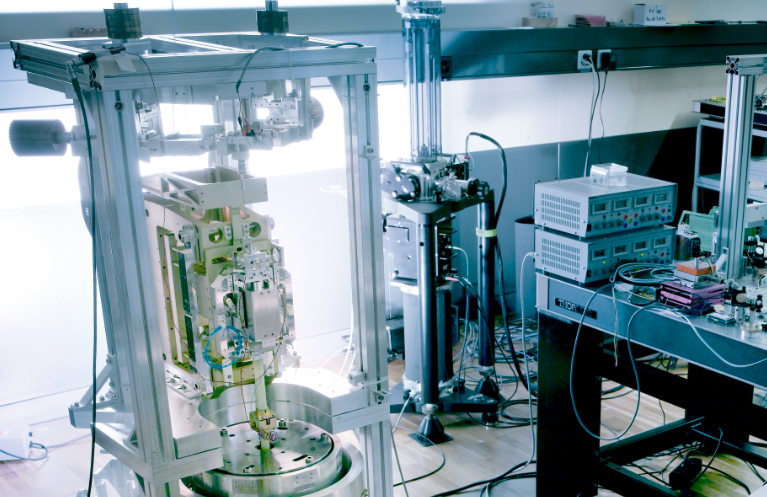In future, the kilogram is to be defined using natural constants instead of the international prototype kilogram in Paris. One of the experiments contributing to this goal is the watt balance. It is a complex two-part experiment based on a precise comparison of mechanical and electrical power.

The watt balance: a highly complex measuring instrument for the purpose of defining the kilogram
Metrologists are working on experiments intended to serve as a basis for a new definition of the kilogram. Here, METAS is focussing on the watt balance principle. This approach involves a precise comparison of mechanical and electrical power. A complex, two-part experiment is making it possible to relate the kilogram to a natural constant – Planck’s constant – using electrical units. In practice, the watt balance is a highly complex measuring instrument. It is required to measure several variables simultaneously with the utmost accuracy.
Why replace the prototype kilogram?
The kilogram is the sole remaining unit still defined by means of a material measure, the prototype kilogram in Paris. The other units have by now been redefined using physical natural constants. If a unit is defined using a material measure, we are greatly dependent on this physical embodiment. If the definition of a unit is based on a physical natural constant instead, reference standards for this unit can be realised in any well-equipped precision measurement laboratory. More importantly, however, a system of units must consistently define measurement units in science and technology, yet also satisfy the needs of business and society. It will need to be revised regularly in line with scientific and technological progress, on account of the fact that this progress is constantly posing new challenges for metrology and its fundamental principles.
Last modification 21.11.2024
Contact
Federal Institut of Metrology
Henri
Baumann
Lindenweg 50
3003
Bern-Wabern
T
+41 58 387 02 43

